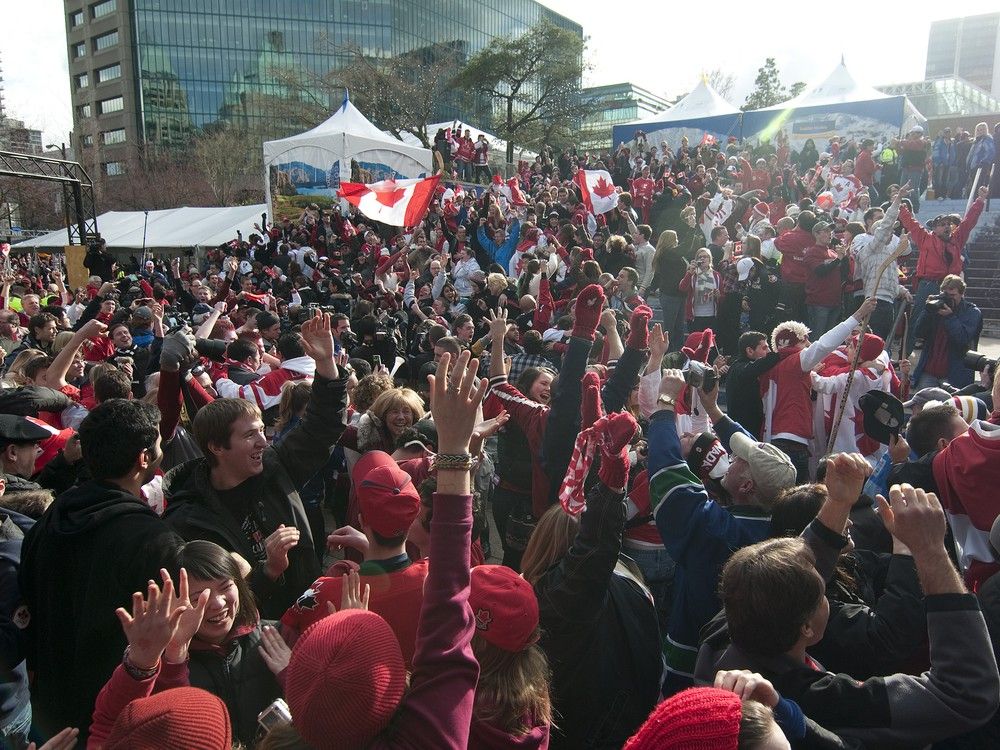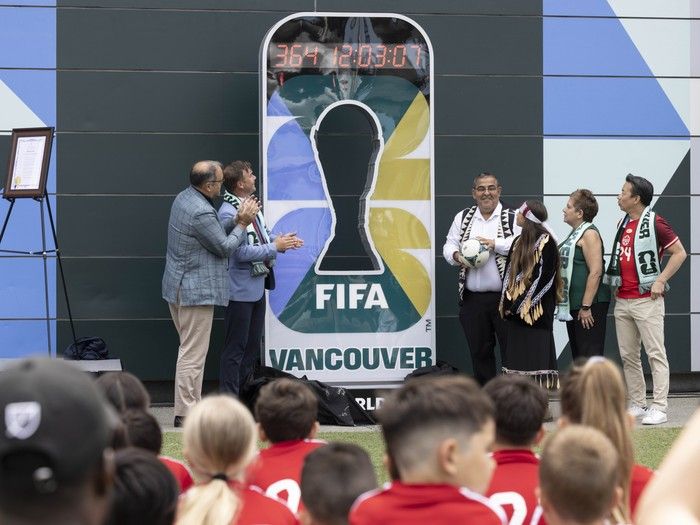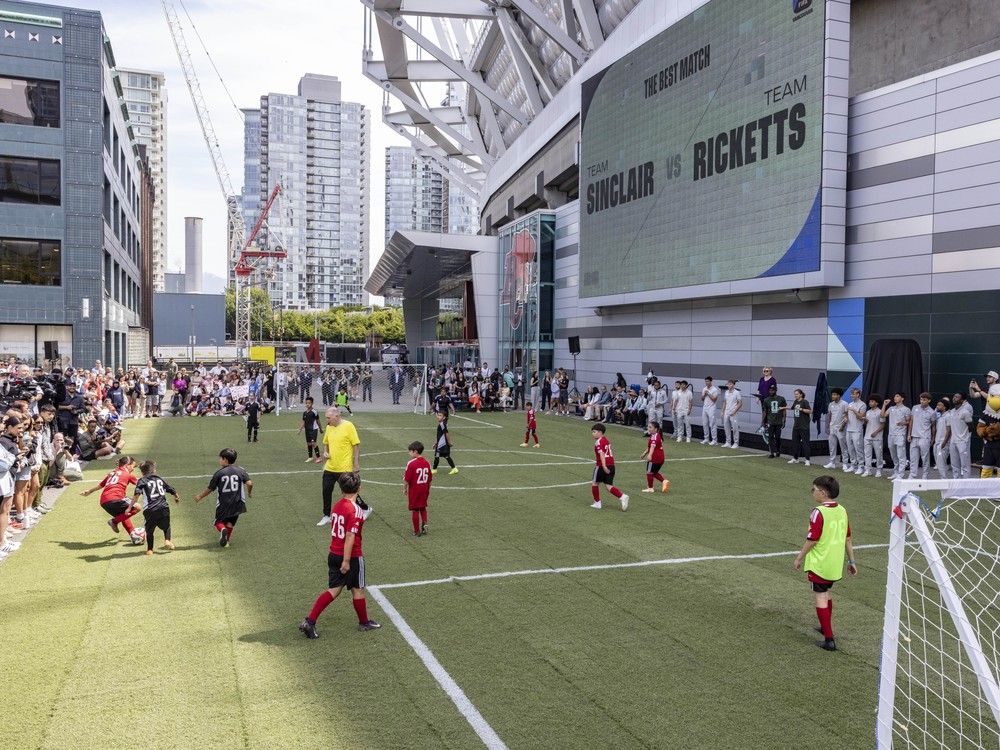
The provincial government and City of Vancouver provided some answers to the long-simmering FIFA World Cup funding questions on Wednesday, and promptly raised a host of new questions.
The overall costs of planning, staging and hosting seven FIFA World Cup 2026 matches will cost the province between $532 million and $624 million — a total split between several jurisdictions — and one counterbalanced by a predicted revenue of $1 billion for the tournament.
But in their estimation of gross revenue of $448 million to $478 million, strictly derived from taxes, venue rentals fees and transportation, is a line of $116 million in a federal contribution. Which, since it’s funded by taxpayers, could actually make the total cost as much as $740 million, not $624 million.
A provincial spokesperson provided a response, but not quite an answer: “The Government of Canada’s commitment of up to $115.660 million is counted as revenue as it offsets gross core hosting costs (operational and capital expenditures) related to the hosting of the 2026 FIFA Men’s World Cup in Vancouver.”
The bid to be a World Cup host city, a roller-coaster in itself, was a polarizing process. Even as recently as last July, an Angus Reid poll showed that B.C. residents felt it “wasn’t worth it” by a three-to-one margin .
But that is short-term thinking, said Professor Jarrett Vaughan of the UBC Sauder School of Business.
“As expert in the field of tourism, it is an excellent thing for this city and this province — and we need more of this,” he said. ‘We need more events like the World Cup coming to Vancouver to showcase our city on the world stage — because we have something to showcase. Cities who don’t have something to showcase need these events to bring people in one-time. We need these events to bring people back a second, third, fourth and fifth time, because once they experience it, they typically want to come back.
“These world-class events are really important for us, because I think people underestimate how important tourism is to our province and to our city. It is our second largest industry after forestry. We can’t ignore these things … these are very important job providers to our local economy. … They create jobs that people can continue to try to afford to live in this very expensive and inflated economy that we live in.”

The estimate of $1 billion in revenue was in a report conducted by B.C. Stats and the Ministry of Tourism, Arts, Culture and Sport in partnership with Destination B.C., based on data from Sport Tourism Canada, and separate from a FIFA-derived report claiming a $1.9 billion bump. And Vaughan agreed he thought the billion-dollar claims were realistic ones, with Vancouver’s history — including the Women’s World Cup, 2010 Olympic Games, annual surge of cruise ship passengers and Expo 86 — providing an accurate road map of what to expect.
The 2010 Winter Games laid claim to a $1.884 billion revenue total, offset by the massive infrastructure upgrades needed to host. The World Cup will only have one venue — B.C. Place — and various training sites located around town and at UBC. PavCo, the Crown corporation that runs B.C. Place, is undergoing retrofitting and renovations that will run between $171 million to 181 million, including the hydroponics to keep a natural grass turf alive for the duration of the tournament.
“When these kind of numbers are produced, they’re generally based on things like tourism, tourism receipts, looking at the number of people that are anticipated to enter the city, the number of people that are anticipated to be spending money in hotels, based on average daily rates, average spends at restaurants, the average number of dollars that people have to spend on retail and transportation,” he said. “So these are fairly predictable measurements, because we know how many seats are in the stadiums, and that helps experts anticipate these revenue numbers.”

More than 350,000 visitors are expected to come to Vancouver for the World Cup games next year, and the organizers repeatedly pointed to data that shows first-time visitors to B.C. are likely to return four times over their lifetime. The Province forecast an additional one million visitors in the five years above the norm following the World Cup, and an additional $1 billion spread out over that time frame.
“If the games are successful, if there’s no significant issues, and if the weather is reasonable while people are here, it’s very reasonable to think that’s possible. You’d be hard pressed to find somebody who comes to Vancouver on a sunny day who doesn’t want to come back,” he said.
But Vaughan says Vancouver hosting the event is not without its challenges.
“We don’t have enough hotel rooms in the city. We don’t have the capabilities to hold enough people in the city, because the cost of land and the incredible bureaucracy of both the province and the city of Vancouver imposes on developers. So the removal of these things are really important so we can continue to hold these events, because they’re the lifeblood of the city.
“I hope to see more things like this. … It doesn’t get much bigger than the World Cup. But there’s still lots of huge events around the world, especially related to sports, that we could be able to host in due time, and maybe one day we’ll see the Olympics return to Vancouver.”